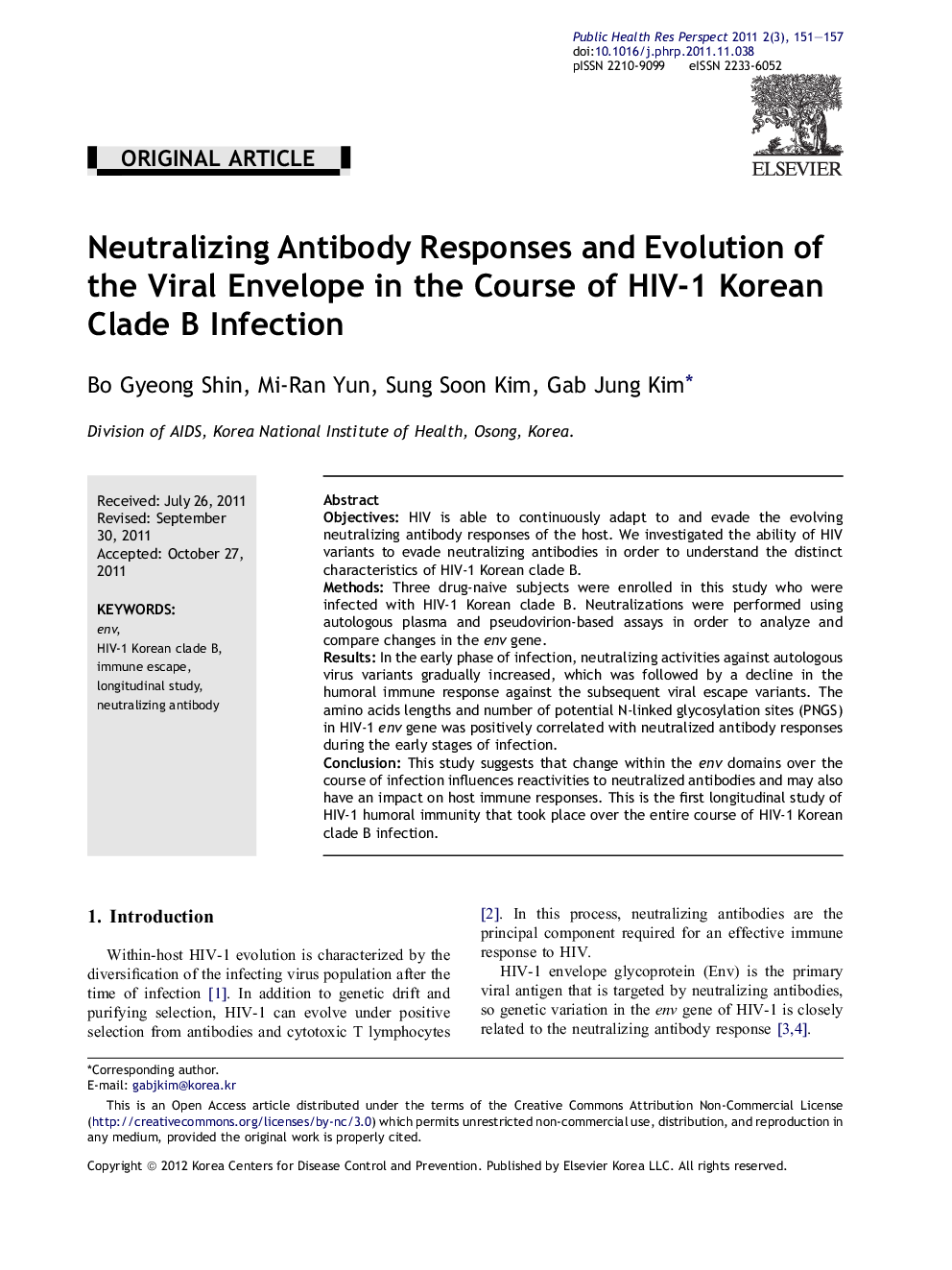| Article ID | Journal | Published Year | Pages | File Type |
|---|---|---|---|---|
| 4202176 | Osong Public Health and Research Perspectives | 2011 | 7 Pages |
ObjectivesHIV is able to continuously adapt to and evade the evolving neutralizing antibody responses of the host. We investigated the ability of HIV variants to evade neutralizing antibodies in order to understand the distinct characteristics of HIV-1 Korean clade B.MethodsThree drug-naive subjects were enrolled in this study who were infected with HIV-1 Korean clade B. Neutralizations were performed using autologous plasma and pseudovirion-based assays in order to analyze and compare changes in the env gene.ResultsIn the early phase of infection, neutralizing activities against autologous virus variants gradually increased, which was followed by a decline in the humoral immune response against the subsequent viral escape variants. The amino acids lengths and number of potential N-linked glycosylation sites (PNGS) in HIV-1 env gene was positively correlated with neutralized antibody responses during the early stages of infection.ConclusionThis study suggests that change within the env domains over the course of infection influences reactivities to neutralized antibodies and may also have an impact on host immune responses. This is the first longitudinal study of HIV-1 humoral immunity that took place over the entire course of HIV-1 Korean clade B infection.
